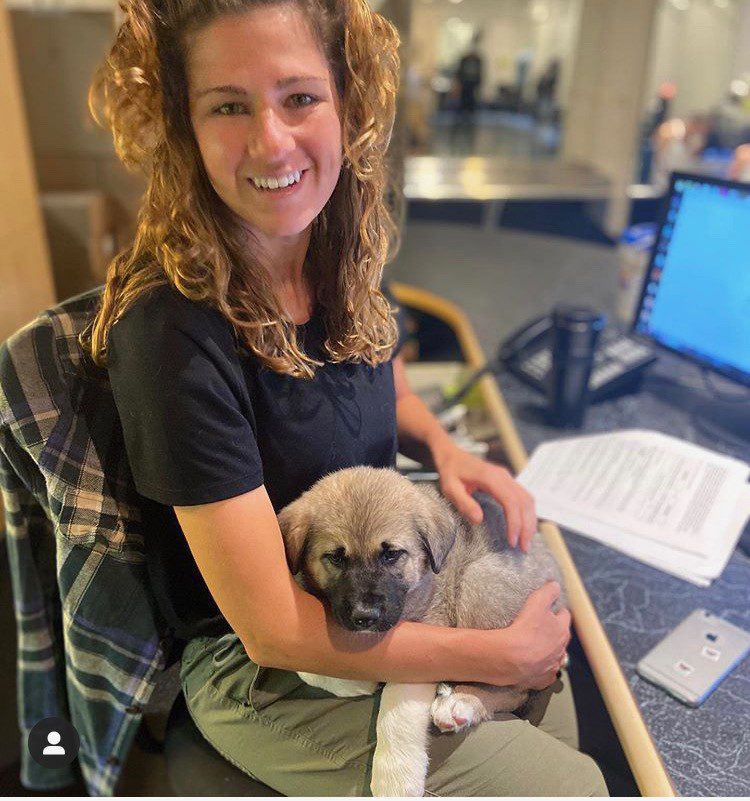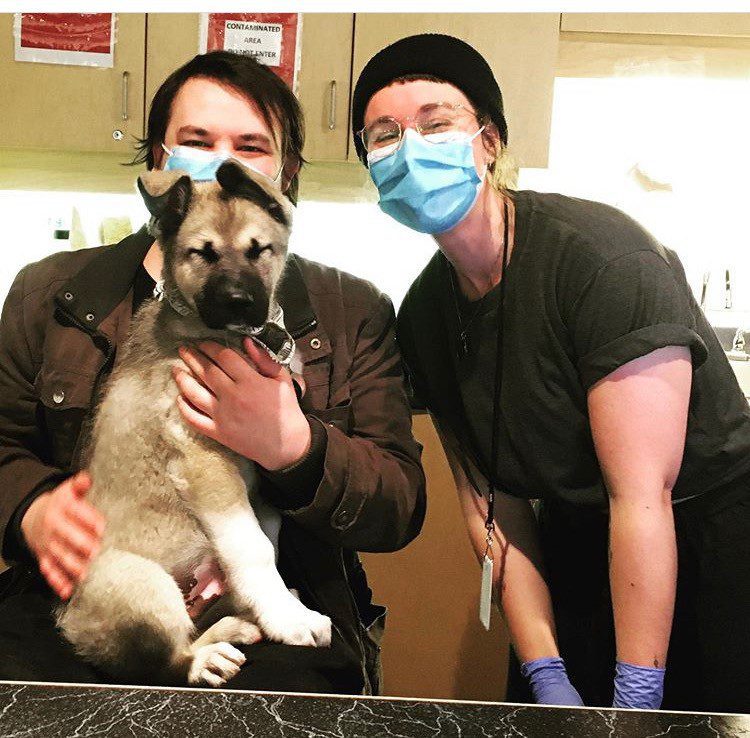Kelsi Jessamine was not looking for a therapeutic dog when she adopted Malakai from the Vancouver BC SPCA this summer. But the husky-shepherd mix ended up being the perfect medicine for the registered nurse and her clients at a harm reduction clinic in Vancouver’s Downtown Eastside.
While Malakai isn’t a certified therapy dog (yet) Jessamine often brings the six-month old pup to her place of work where he provides support and relief for her patients.

Jessamine always dreamed of incorporating a companion animal into her nursing practice, and she says that Malakai’s gentle charismatic nature and adaptable personality made it a reality. “One of my colleagues calls Malakai ‘Mally the Magic Mood Booster’. Clients will often ask if Malakai is working before they register to come into the clinic. We also have first responders and other members of the community stop by the clinic and ask to see Malakai. When he’s on site he positively influences our clients’ moods and their readiness to engage with staff.”
The first time she realized just how powerful Malakai’s presence was during an interaction with a very paranoid and agitated client. “This particular client was experiencing persecutory delusions, where he believed staff and other participants at the site were going to cause him harm,” says Jessamine. “He was very anxious and had refused any supports from clinic staff for over three hours. However, as soon as Malakai came into the clinic, this client suddenly became cooperative and directable. Malakai provided a positive distraction and helped the client feel safe.”

Jessamine says Malakai’s calming influence is most significant with clients who are experiencing psychosis. “Clients who are experiencing auditory or visual hallucinations, due to mental illness or substance use, generally don’t have the capacity to therapeutically engage with clinic staff. However, in the presence of Malakai clients experiencing psychosis will unexpectedly strike up conversation with clinic staff and begin telling you about the pets they had growing up. Companion animals provide a gateway for clinicians to build rapport and trust with clients and then in turn offer therapeutic support.”
In addition to supporting clients at work, Malakai also helps Jessamine with her work for Community Veterinary Outreach (CVO), a charity that promotes the health and wellness of vulnerably housed people and their pets.
“Malakai has helped with pet food distribution for vulnerable clients who are physical distancing during COVID,” says Jessamine. “Bringing Malakai with us on our outreach visits helps us interact and build rapport with clients. Clients are visibly more comfortable in the presence of Malakai and will initiate conversation about the dog before our team engages.”
Jessamine says she hopes to have Malakai certified as a therapy dog when he’s a bit older as she believes the usage of therapy dogs is a much-needed form of healing that can help a variety of people.

“I think the use of therapy dogs should be more widespread in healthcare and social service. Therapy dogs are an asset in supporting patients when they are feeling most vulnerable,” she says. “The most challenging and guarded clients who we see at the clinic will suddenly start smiling in the presence of the dog.”
Recently she says a client came into the clinic experiencing complex pain. “She was tearful and not ready to engage with any of the team members but asked to see Malakai. He went over and sat beside her wheelchair and the client hugged him until she felt better. After being comforted by the dog, she was ready to talk with the clinic staff. Therapy animals are so calming for clients that they can be used as a powerful tool for therapeutic engagement.”
